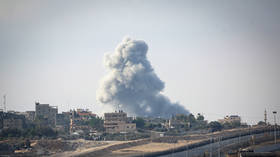The Spanish Civil War

The Spanish Civil War of 1936-1939 was one of the most significant moments in the history of anarchism. The outbreak of the conflict sparked a revolution, in which women and men inspired by anarchist ideas took control of the streets of Barcelona and the fields of Aragon. For perhaps the first, and last, time in history, libertarian communism appeared to be imminent, if not already in effect. In under a year, however, the revolution was over, and the anarchist movement was fractured and in the process of being crushed in the wake of the Nationalist advance across the country.
Franco’s final victory and the decades of repression which followed marked the end of anarchism as a mass movement in Spain. These events were only possible because of the depth and longevity of support for the Spanish movement. Anarchist principles of grassroots, revolutionary unionism underpinned the national branch of the First International (FRE: 1870 – 1874) and its successors the FTRE (1880 – 1888) and FSORE (1900 – 1907).
These organisations were prone to cycles of enthusiasm and action, followed by paralysis and collapse. Difficulties were particularly acute during periods of repression, such as that which followed the upsurge of anarchist terrorist attacks in the 1890s. Yet the movement was broader than its organisations, and was sustained at the turn of the century by its cultural foundations in working-class communities, above all in Barcelona and its surrounding towns. The movement was also strong in south-west Andalusia (particularly Seville and Cádiz provinces), western Aragon, and the Levante (Valencia and Murcia), along with pockets of support in the north-eastern ports (La Coruña, Vigo and Gijón), the Basque regions, and Madrid.


